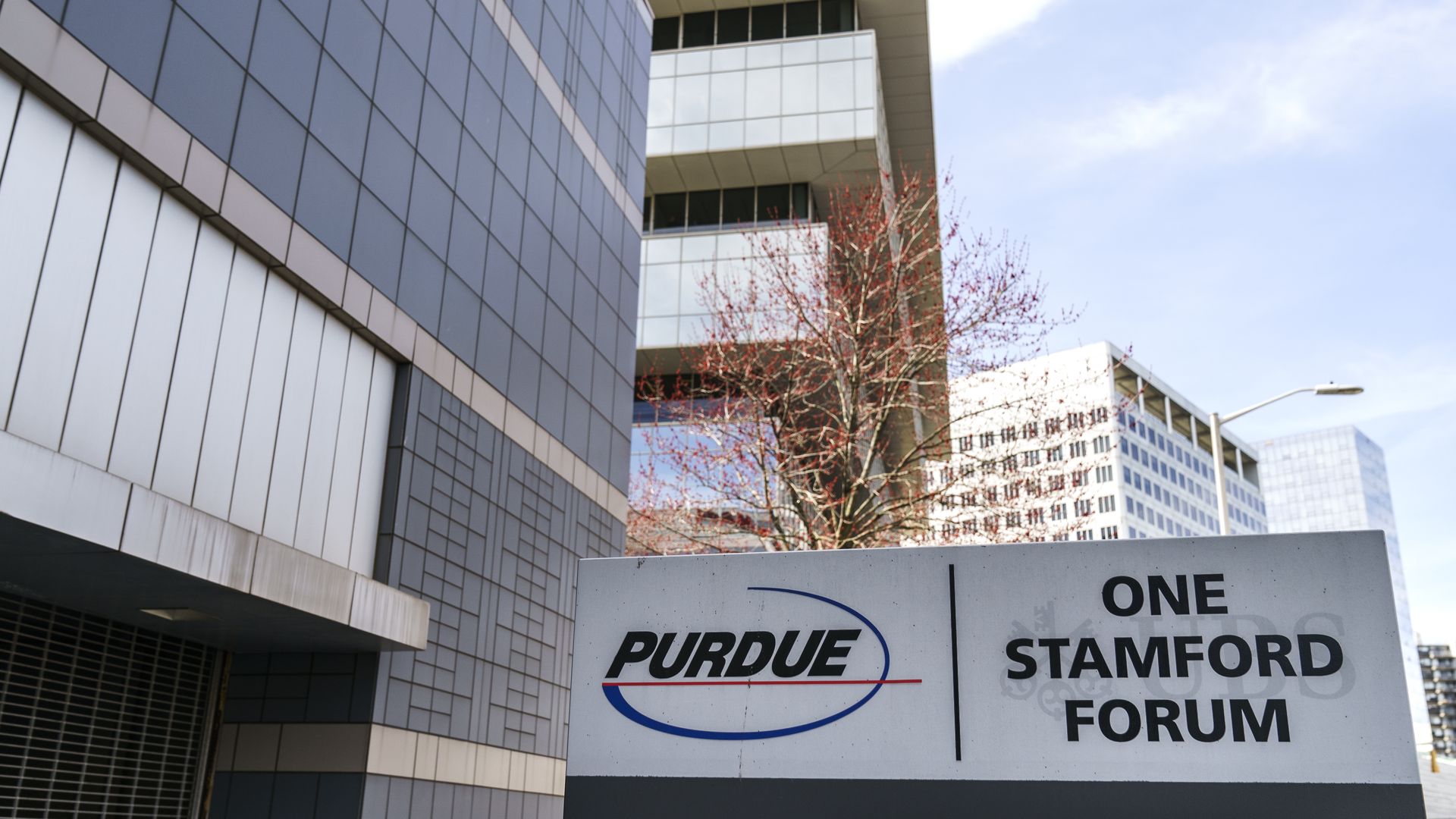The opioid tracking group with Big Pharma ties
Add Axios as your preferred source to
see more of our stories on Google.

Purdue Pharma founded RADARS in 2001. Photo: Drew Angerer/Getty Images
A small yet influential group called Researched Abuse, Diversion and Addiction-Related Surveillance, or RADARS, monitors how opioids are misused across the nation. It also accepts money from the companies that make those opioids.
Why it matters: Health care experts view RADARS as a credible, independent resource, but its ties to the pharmaceutical industry raise questions about how the group operates.
How it works: RADARS tracks opioid misuse and abuse by collecting phone call information from poison control centers and patient survey data from addiction treatment programs.
- This allows RADARS to know about pills children are accidentally swallowing, or which legal and illicit opioids are driving people to seek rehab.
Details: Purdue Pharma, the maker of OxyContin, founded RADARS in 2001 after concerns of prescription painkiller addictions started to rise.
- But having an opioid company track misuse of its own products gave the perception that the fox was guarding the henhouse, so Purdue sold RADARS to Denver Health, a publicly owned hospital system in Colorado that also houses a poison and drug center.
RADARS still has close connections to the pharmaceutical industry.
- RADARS and its affiliated poison center brought in more than $25 million of revenue last year for Denver Health — most of which is subscription fees, from opioid manufacturers and others, to get access to its data.
- Researchers paid by RADARS have written articles that line up with industry views. For example, a 2015 article in the New England Journal of Medicine said the U.S. was "making progress in combating the abuse of prescription opioid analgesics" even though the overall number of overdose deaths from prescription opioids has remained pretty much the same.
- Richard Dart, the head of RADARS, received more than $112,0000 from Purdue Pharma in 2014 for his consulting work on the company's opioids, and he has received tens of thousands from other opioid manufacturers. (Denver Health disputed those payments.) Purdue Pharma also has paid for Dart's travel to FDA opioid meetings in the past.
- Johnson & Johnson cited RADARS, in opening testimony in its case versus Oklahoma, to show its opioids were not frequently abused.
What they're saying: Dart referred all questions to lawyers at Denver Health. A Denver Health spokesperson submitted written responses, which acknowledged the system had contracts with Purdue and other manufacturers, but did not respond to follow-up questions.
Go deeper: Drug companies have a history of shaping public opinion and research.
